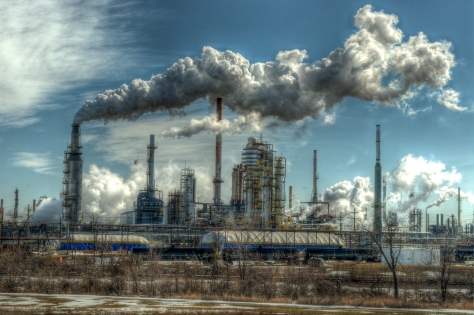Repost from the Washington Post, via Bowling Green News
Richest nations fail to agree on deadline to phase out fossil fuel subsidies
By Simon Denyer Washington Post, Jul 1, 2016
BEIJING – Energy ministers from the world’s major economies have failed to reach agreement on a deadline to phase out hundreds of billions of dollars in government subsidies for fossil fuels – subsidies that campaigners say are helping to propel the globe towards potentially devastating climate change.
Ministers from the Group of 20 major economies met in Beijing on Wednesday and Thursday, but failed to reach agreement on a deadline, despite Chinese and American efforts and a joint appeal from 200 non-governmental organizations.
The Group of Seven richest economies last month urged all countries to eliminate “inefficient” fossil fuel subsidies by 2025. At a separate annual meeting in June, the United States and China agreed to push for a firm target date to be set at a summit of G20 leaders in Hangzhou in September.
Non-governmental groups are urging a “full and equitable phase-out by of all fossil fuel subsidies by 2020, starting with the elimination of all subsidies for fossil fuel exploration and coal production.”
But energy ministers from the G20 failed to reach agreement on a deadline this week.
“The communique repeats the importance of moving towards a subsidy reduction,” U.S. Energy Secretary Ernesto Moniz told reporters in Beijing. “But within the G20 there are different views on how fast and how aggressive on can be on that.”
The communique itself was not immediately available, although Chinese state news agency Xinhua reported that it stressed the need to boost renewable energy investment and consumption.
Moniz said the G20 had not agreed a specific timeline to eliminate subsidies, but said the United States believed that by 2025 or 2030, “we’d like to see very substantial progress.”
A 2015 report by the British think thank Overseas Development Institute, along with Oil Change International, calculated that the G20 major economies subsidize fossil fuel production to the tune of $444 billion a year, marrying “bad economics with potentially disastrous effects on the environment.”
Russia spends some $23 billion in annual subsidies, and the United States $20 billion – despite President Obama’s calls to end tax breaks on the fossil fuel industry, the report said. China spends $3 billion, while the United Kingdom is one of the few G20 countries increasing fossil fuel subsidies and cutting back on investment in renewable energy. Total G20 subsidies for fossil fuels was four times the total global investment in renewable energy, it estimated.
“It is tantamount to G20 governments allowing fossil fuel producers to undermine national climate commitments, while paying them for the privilege,” the report said.
A promise to cut subsidies was first made at a G20 meeting in Pittsburgh in 2009, but since then very little progress has been made – until the G7 finally set a target date last month, said Li Shuo, a climate energy campaigner at Greenpeace.
“We think that it is critical that the G20 follows this approach and the timeline should be even earlier,” he said.
Saudi Arabia has been the major blocker of a deal at the G20, Li said, while the United States and China want to take advantage of low oil prices by making progress this year.
“It’s not clear how long this window will last, so it’s important to take maximum advantage of it,” he said.
Moniz said the Saudis had already lowered fuel subsidies as part of an economic restructuring package, and were promising a second phase of subsidy cuts. “They are realizing, just as the other fuel producing countries are realizing, that promoting inefficient use of this valuable resource has to end,” he said. “Now they have to look at how they are going to structure their safety net programs.”
But he played down expectations that a firm date for eliminating subsidies could be agreed.
“We think the middle of the next decade would be a good time, but it’s not going to be one magic date for everybody.”
At United Nations talks last year, countries agreed to take action to curb emissions in an effort to keep temperature rises to 2 degrees Celsius (3.6 degrees Fahrenheit). But officials and experts agree much more needs to be done to reach that goal.
In an interview, Moniz said the Paris accord was a “major first step.” But he underlined the urgency of action to curb global greenhouse gas emissions, especially given the risk of “extremely disruptive” events, such as a significant rise in sea levels caused by a rapid melting of the Arctic ice cap.
“If anything, what’s been disturbing is that many things are happening more quickly than the various models have predicted,” he said.
“It’s not only the target in terms of carbon emissions, it’s when you get there – and you have to get there quickly.”
Moniz said the United States would eventually have to the legislative action in Congress to reach longer-term emissions goals, but he said that he believed public pressure for Congress to act would mount as sea-levels rise and “Mother Nature’s voice” continues to get louder.








